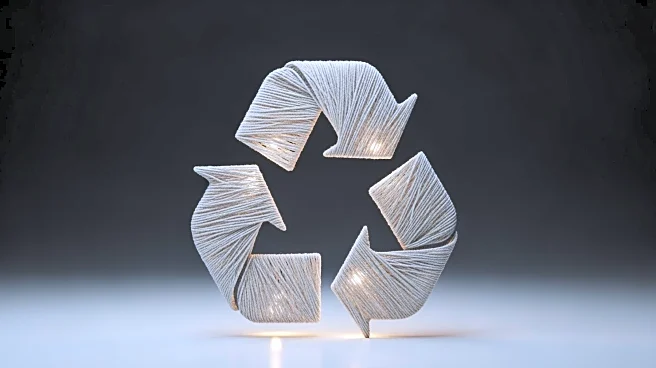What's Happening?
Berlin-based start-up Reverse.fashion GmbH has successfully secured investment from the Swedish clothing giant Hennes & Mauritz (H&M) in a pre-seed funding round led by the Berlin-based investment firm
Kisora. Founded in 2024, Reverse.fashion is focused on developing automated sorting processes for used textiles, aiming to address bottlenecks in the recycling process. The company plans to use the funds to expand its development and operations teams, advance its innovative solutions, and support pilot projects with industry partners. The start-up's 'AI Sorting Partner' application is currently in a pilot phase and is expected to be commercially available by the first quarter of 2026. Mario Osterwalder, a founder of Reverse.fashion, expressed enthusiasm about the investment, highlighting its potential to accelerate the company's roadmap for bringing automated textile sorting to the market.
Why It's Important?
The investment from H&M into Reverse.fashion signifies a growing interest in sustainable practices within the fashion industry. By supporting innovative recycling technologies, H&M is aligning itself with global sustainability goals and addressing the environmental impact of textile waste. This development could lead to significant advancements in the efficiency and effectiveness of textile recycling, potentially reducing costs and improving the quality of recycled garments. The initiative also reflects a broader industry trend towards circular fashion, where the lifecycle of garments is extended through recycling and reuse. This could benefit consumers by providing access to more sustainable clothing options and help the environment by reducing landfill waste.
What's Next?
Reverse.fashion plans to continue developing its automated sorting technology, with the first commercial use of its 'AI Sorting Partner' application scheduled for early 2026. The company will likely engage in further collaborations with industry partners to refine its technology and expand its market reach. As the fashion industry increasingly prioritizes sustainability, other companies may follow H&M's lead in investing in similar technologies. This could lead to a more widespread adoption of automated textile sorting solutions, further driving the shift towards sustainable fashion practices.









